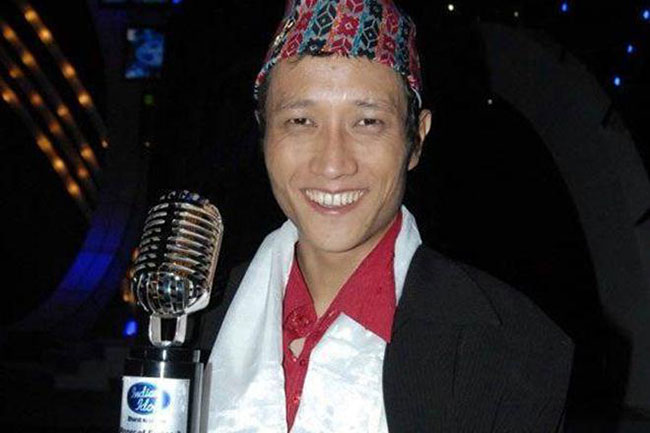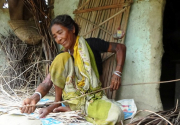
OR
Being a Nepali
September 2, 2017 01:03 AM
People tend to meander and talk about broadening “Nepali” identity so as to subsume Madhesis in it.
It appears things haven’t changed much since Prashant Tamang was rooted to fame by the citizens of our nation. The support bestowed to the lad of Darjeeling a decade ago was confounding to all who sought a geographical limit to national identity. According to Harsha Man Maharjan, who has researched this topic and analyzed hundreds of media reports from back then about the Indian Idol: “Although Prashant Tamang is an Indian citizen, the Nepali media presented him as a “Nepali”. This shows that, for the Nepali media, a nation is an imagined community that encompasses people beyond its borders”.
From the last wave of support to the brethrens east of river Mechi, it appears the new buzzword for labelling them is “Nepalibhashi”, though this time around more controversies have been circling around whether Nepali speaking people of India can even be called Gorkhas (or more appropriately Gorkhalis). These seasonally viral sentiments don’t stick around for long; other thoughts however remain perennially ingrained. Most Nepali writers refer to these classes of people as belonging to “Nepali Jati” which translates into English as “Nepali ethnicity”.
But on most occasions when “Nepali” is classed as an ethnic group, it gets refuted, probably because people understand the repercussions of a nationality that gets restricted to an ethnic group. It is in line with this thinking that Chalmers came to refer to the construct as “a Madhesi-less Nepali ‘we’ that could not extend beyond hill solidarity”.
From the latest wave of support for the brethrens east of Mechi, it appears the new buzzword is “Nepalibhashi”.
It is primarily because of these important anomalies with Nepali identity that Madhesis have a right to question it. First, how come Darjeelingites and Madhesis are both Nepalis; second, does Nepali symbolize an ethnic identity or a national identity; and third, is it okay for a national identity to flow beyond the boundaries by promoting the symbols of only a select group of communities?
Rootless Madhesis
The inability to see one’s reflection in the national identity is psychologically troubling, as one is forced to endlessly question the ownership and belongingness to the nation one calls home. It becomes undeniable for such groups that they are “migrants” or “refugees” living on the charities and benevolence of the “true” nationals. It creates inferiority complex among such groups, as they doubt their own nativity. And when doubted, assimilatory requirements for these people to align with the “mainstream” can be repulsive to their self-esteem. Unfortunately, this is what has been confronting the Madhesis. They are neither migrants/refugees, nor do they belong to the Nepali Jati.
 Prashanta Tamang
Prashanta Tamang
A dire urge to be called Nepali is attested in all personal accounts written by prominent Madhesis in the last decade, from CK Raut to Prashant Jha, from Tula Narayan Sah to Chandrakishore Jha, and from junior writers to seniors alike. They have consistently portrayed one common affliction: “People of the hills don’t call us Nepali, or don’t treat us as one”.
Because our nation is called Nepal, it is not a mistake that the issue of nationality gets attached with Nepali, also the national language. And because Madhesis aren’t related to this language, they face neglect. It is a mind game, etched deep into the psyche of hill people that the plains aren’t Nepal, nor its people Nepali, and they need to be made so. So they obviously resort to classic assimilatory tactics, as Gaige called it “Nepalization” of Madhes and its people.
On the other side of the border in India it is easy to find Indians who associate themselves with Nepali identity. They are no less caught up in this fix of identities. For them, “Nepali” is their ethnic identity, while “Indian” remains a nationality. The perplexity is such that senior scholars of the plains, hills and even India have argued, albeit with baffling logic, that all Nepalis are not necessarily Nepalis, as if there is a difference between a Bengalese and a Bengali or a Lebanese and a Lebanani.
The fix
It isn’t that nobody has perceived this as a problem. Various derivatives of the Nepali identity have been proposed in the past few decades in attempts to separate the ethnicity from the nationality—from chipping down the anglicized term “Nepalese” to “Nepali”, to Nepaliya (Ne-Paa-lee-Ya, Homonymous with Bharatiya), to Nepalimul, and even Nepalbaasi. Strangely, all the analysts who have delved into this issue have stuck with the derivatives. None have proposed an entirely new term reserving Nepali (and all its forms) for what it is—an ethnic identity, which can unhesitatingly be used by anybody in the world for people of “Nepali jati”!
Rather than be cry babies yelling that no one calls them Nepali, Madhesis should instead seek to redefine the nation’s identity. Though there is a catch here too. When talking about redefinition, people tend to meander and talk about redefining/broadening “Nepali” identity so as to subsume Madhesis in it. If that was possible, it could have already been done. Absolving the nationality of its ambiguity requires out of the box approach. When I put this query to analyst CK Lal, he replied: “Broadening “Nepali” identity has proved to be stretching the un-stretchable, it’s more practicable replacing it altogether with something new”.
Politicians and writers alike have played hermeneutical games to maintain the status quo. Even indulging in talks about multi-nationality, as the Rastriya Janata Party Nepal has done, does no good as the umbrella terminology or the national demonym that has forever plagued Madhesis is hardly contested.
It is difficult, very difficult, to accept this when you have power and dominion over the country. There’s no reason—except for the longer term good of the nation—for one community composed of people of sane minds to voluntarily relinquish its chronic stranglehold. May be it’s the time we have insane folks who can really weigh the demands of formally ethnicizing Nepali identity so as to break the old mould of debates and really get started on debating a more suitable nationality that makes a clear departure from ethnic nationalism.
The author is a sociologist with an MA from the Indira Gandhi National Open University
scyfie@gmail.com
Hash Tag:
You May Like This

We are Nepali at heart despite changed identity: Indians of Nepali origin
KHUTAUNA, (Bihar), April 28: Two blue boards reading ‘Pahadi Tola’ hang on both sides of the entrance gate of Khutauna... Read More...

Nepali Market for Nepali Products
KATHMANDU, Oct 19: It is not necessary that there is a back story behind every business. The Local Project started as... Read More...

Nepali worker dies after being hit by bus in Malaysia
RAJBIRAJ, Jan 31: A Nepali migrant worker has died in a road accident in Malaysia. ... Read More...


Just In
- Chemical fertilizers imported from China being transported to Kathmandu
- Man dies in motorcycle accident in Dhanusha
- Nepal face early setback as four wickets fall in powerplay against UAE
- Australian unemployment rate rises to 3.8 percent in March
- Gold price increases by Rs 700 per tola
- Fire destroys wheat crop in Kanchanpur, Kailali
- Bipin Joshi's family meets PM Dahal
- State Affairs and Good Governance Committee meeting today
















Leave A Comment